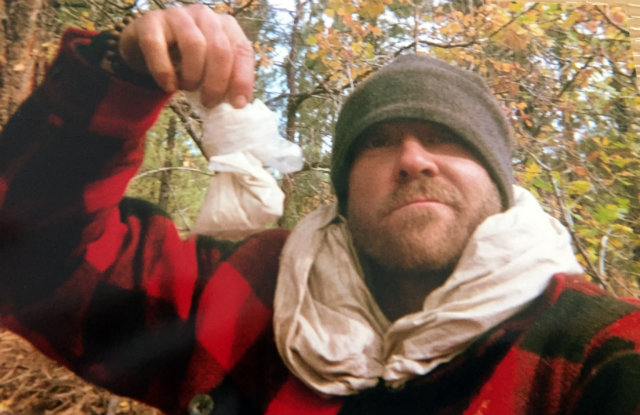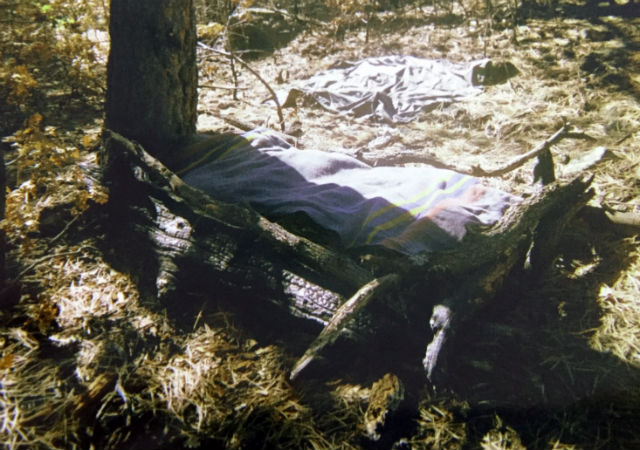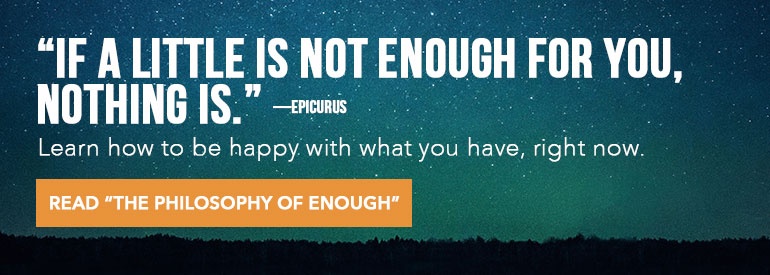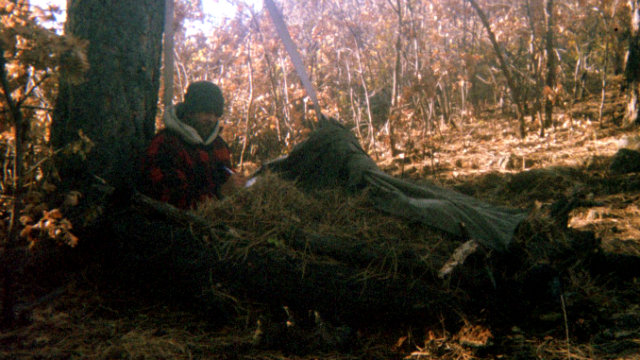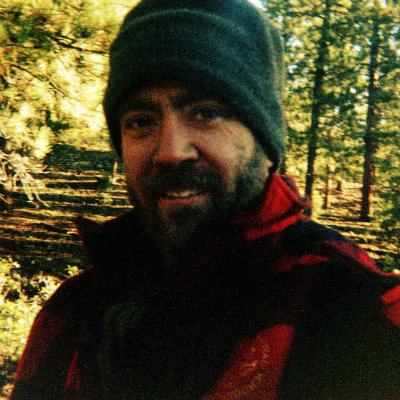 Reading Time: 9 minutes
Reading Time: 9 minutesSeptember, 2016, somewhere in the frigid southern Utah wilderness. It was raining. My buddy Patrick and I were huddled under a military-style poncho we’d pulled over our heads. Two minutes earlier we had been building our shelter for the night — a fallen log leaning up against a tree to create the A-Frame structure that we’d then stack more fallen branches against. Our plan was to fill the whole thing with feet upon feet of dry pine needles with the goal of sliding ourselves into the pile in an attempt at achieving warmth.
But rain was now falling on our pine.
Patrick had laid his own poncho over our makeshift bedding in hopes of keeping it dry. Now we sat, shoulder to shoulder, laughing at the ridiculousness of the situation.
Here we were in the middle of nowhere, freezing, and starving. I’d lost close to twenty pounds in the preceding three weeks, and would lose six more in the remaining week of our thirty-day course with Boulder Outdoor Survival School (BOSS).
I know, this situation doesn’t actually sound funny.
But Patrick and I laughed together at the absurdity of nature, at the fact we had paid to be there, and at our misery. Following the “compare down” motto our BOSS instructors had drummed into our heads since day one, we joked, “Could be worse. It could be hailing.”
Mother nature’s sick sense of humor chuckled back at us and right on cue, we started getting pelted with marble-sized balls of her frozen amusement.
The only thing left to do was to continue the exercise we’d all been engaged in since the very first time we were told, “Okay, saddle up, we’re walking into the woods.”
It was time to surrender.
How to Save Your Mind Through Surrender
The goals of the BOSS course were to teach us how to make fire, to find food, and to build shelter. But I believe the greatest lesson was the hardest, especially for a type-A athlete like me — to surrender.
From the moment we left camp on our first night, I was completely out of control of my external world. I never knew what time it was, where we were, where we were going, when we’d stop, or when I was going to get food next.
By design, every question we asked our instructors was answered with, “We’ll see.”
What I wanted was just one point of reference. If you tell me I have to do 1,000 squats (like I did one Saturday morning with Becca Borawski Jenkins in 2008), I can break those down into 10 sets of 100. Or 20 sets of 50. That’s manageable, no matter how uncomfortable. I can relax knowing what’s expected of me next and where the end is.
However, if you tell me to start squatting on a Monday and that you’ll stop me at some unknown point in the future, I’m most likely going to lose my mind.
The only way to not lose it, as I would find out, is to surrender.
The challenge was that I had always associated surrender with weakness.
What If Surrender Is the Greatest Act of Strength?
That’s the question I had asked myself earlier in the year while dealing with a number of areas of my life falling apart.
What if everything I was told about surrender as a male, an MMA fighter, a Rocky IV watching American, and a CrossFit athlete was misguided?
More appropriately, what if I reframed it to believe there is no greater act of courage than to take a deep breath and be with exactly what is happening in the present moment? To not run to fantasy, or hide behind dissociation. To believe surrendering was in fact, an act of true strength.
The best compliment I consistently received when I was in athletics was, “You’re coachable.” Of course I am — my father is an engineer. If you want me to do something just show me the how-to steps, slowly and in order. So, let’s do the same thing here for surrendering.
Step 1: Identify What We Can and Cannot Control
Open your eyes and look at everything happening in your external reality. Your relationships, health, finances, and every other component of the world around you. Ask yourself how much of that reality is truly in your control. Could any or all of it just disappear tomorrow?
- Is your marriage one conversation away from ending at any time?
- Is your health one felt lump in the shower or one car accident away from changing forever?
- Is your job a guarantee? Today, tomorrow, a year from now?
It’s a terrifyingly sober thought, but we are in control of nothing in our external worlds. Human history is a tapestry of stories of people who, just like you, woke up one day and their lives changed.
Now close your eyes, and feel everything you do have control over.
Yep, you are correct. You can always control your reaction to a situation as long as you stay conscious. While there may be life situations that come along and completely knock us down, over, or drop us all the way to rock bottom, the decisions we make from there are entirely in our control.
Neurologist, psychologist, and Holocaust survivor Viktor Frankl summed this up perfectly:
“Everything can be taken from a man but one thing: the last of the human freedoms — to choose one’s attitude in any given set of circumstances, to choose one’s own way.
When we are no longer able to change a situation, we are challenged to change ourselves.”
Step 2: Accept the Situation
When it was hailing on Patrick and I, there was nothing we could do to stop it. We could beg, plead, yell, cry, and scream. Yet the hail would continue. We had to accept the fact it was hailing and make do.
What we chose to do next was laugh. But before anything could be seen as funny, we had to surrender. We had to give up the idea that we could enact change on the weather or any other aspect of our external experience. All we could change was how we felt about it — how we reacted to it.
That moment was one of the seminal points in my time at BOSS, and the carryover of that lesson into my life has been immense. You can always laugh. But first, you must surrender to the experience.
This is where so many of us type-A people get our heads all twisted. So understand two important things:
- Surrender has nothing to do with liking what we’re going through.
- Surrendering does not mean we’re not going to actively pursue a better experience.
As soon as Patrick and I finished yucking it up at how much fun Mother Nature was having at our expense, we made a plan for what to do when ice stopped falling out of the sky. First, we made a pact to stay positive no matter how quickly it got dark and cold (and both happened quickly). Then we got to work finishing our shelter for the night. I went to get more wood and Patrick fetched more pine needles.
What we didn’t do was waste one ounce of energy wishing things were different. We didn’t fantasize about pina coladas on a warm beach or talk about how much better the weather had been the day before.
We accepted the situation. We stayed present in the moment, but also moved forward. That paradox seems to throw people off so let’s break it down.
The Finances of Surrender
If you are in a tough place due to a life situation, you will need everything in you to survive the situation, heal from it, and then move forward. This situation could be a relationship ending, losing your job, an illness, or a spiritual crisis.
Let’s say it’s going to take $100 of your energetic “capital” every day to get you where you need to be — from point A to point Z. And each morning, depending on your health and some other factors out of your control, you wake up with anywhere from $80-100 in your energetic “bank account.”
It’s up to you how to spend that money to get to point Z. And it’s entirely possible for you to go broke around F, G, or H.
Because you know what’s expensive? Wishing things were different. Let’s say that costs your $10 a day.
You know what else is expensive? Being stuck in the past instead of being with the reality of now. Let’s give that a $10 per day price tag, too.
Every day you refuse to surrender to exactly what is happening will cost you $10. That’s $10 you won’t have toward moving forward. Toward healing, finding a new job, and taking care of yourself. You know how much of a difference “wishing things were different” actually makes? Yep, you know.
Ask yourself what else you could do on your own behalf with an extra $10 of positive energy and momentum per day? That and more is the ROI that surrendering gives you.
Give it a try. Start small. Ask yourself these questions:
- What is out of my control in this situation?
- What is in my control in this situation?
- How much is it going to cost me to pretend I’m somewhere else or wish this wasn’t happening?
- How can I breathe and surrender to what is happening?
- How can I sit in the fire of my experience, learning from it, even if that means learning how to survive it?
Answering those questions honestly is a game changer whether you’re halfway through a marathon, willingly changing your lifestyle habits, or being asked to sign divorce papers.
Let’s Make Lemonade
A week later, Patrick and I walked out of the wilderness along with seven other hungry BOSS students. The hail had eventually stopped, the rains came and went, the cold nights led to warm mornings, and all this, too, did indeed pass.
I lost 26 pounds in 28 days, and still have no feeling in six of my toes. But I know how to build fires, trap rodents, and construct straw huts. Most importantly, I know the power of surrender.
I now know to surrender to what is happening around me and spend every available cent of energetic capital toward enjoying the silver lining and planning to move forward when the storm has passed. To laugh when it snows, to enjoy singing songs to myself to stop my lips from shivering all night, and that a roasted chipmunk split eight ways is better than no roasted chipmunk all to myself.
When life hands you lemons, hold them. Look at them. Examine them.
Take a deep breath and stay in the experience. Surrender to their smell, their color, and their sour taste. And then get good and ready to make some lemonade.


